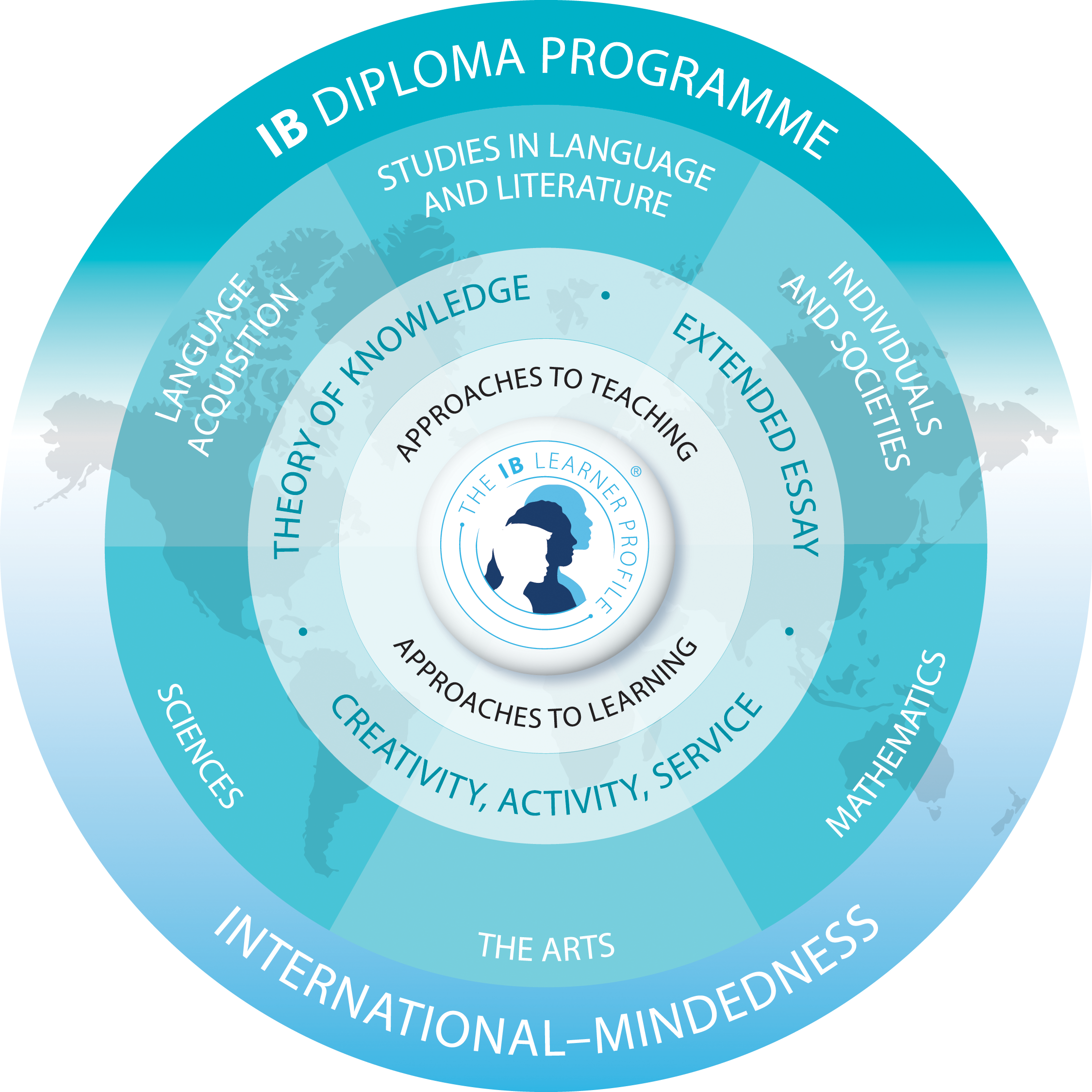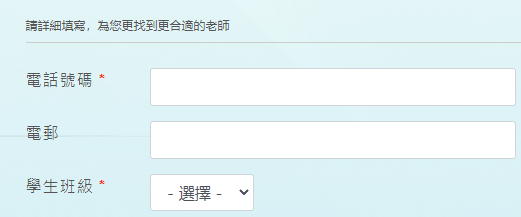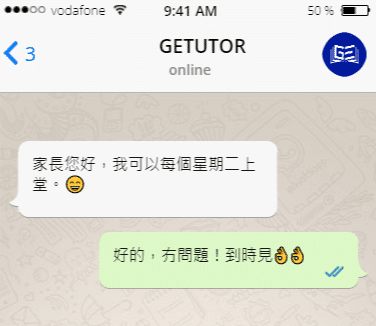IB English Test Taking Tips and IB English Tutor
Many students think thatIB English ExamIt is very difficult. This exam includes many subjects, such as literature and English as a second language. It also testsEnglish Reading SkillsThe programme is designed to provide a wide range of services in the following areas: writing, listening, and speaking.
Sometimes studying alone is not enough to get good grades. MasteryExamination Strategyand skills are even more important.
To help their children prepare for exams, many parents choose to allow them to take the exam.IB English ProgrammeOr find an IB English tutor. A good tutor will be able to help students strengthen their fundamentals, problem-solving skills, andEnhancement of English Language Standards.

When studying with an IB English tutor, it is important to practise mock exams. This will help you to understand exam trends and improve your test-taking skills. In addition, a tutor can help to develop a good study plan and offerEnglish Writingandoral practiceThe proposal.
With the popularity of IB education in Hong Kong, the IB English tutoring market has become even more popular. Many tutorial centres and tutors are popular among students and parents.
Highlights
- The IB English exam is a multi-subject test of overall English proficiency.
- Mastering Examination Strategies and Techniques is the Key to Success
- Attending a course or finding a tutor can help to improve your exam preparation
- Practising mock questions and analysing examination trends will help you to cope with the examination.
- Tutors provide professional guidance in written and spoken English.
Understand the structure and content of the IB English exams
The IB English exam is very important. It is part of the International Baccalaureate Organisation. The aim is to assess students' English language proficiency and knowledge of literature.
IB English Literature HL&SL
The IB English Literature exam tests students' understanding of literary works. Candidates are expected to read a variety of works, such as poems, novels and plays. The exam includes parsing unknown texts and essay writing.
Students are expected to demonstrate understanding and contextualisation of the work.
IB English Language & Literature (IB English Language & Literature HL&SL)
The IB English Language and Literature exam tests students' ability to use language. Candidates need to analyse different types of texts, such as speeches, publicity and news. The format of the exam includes analysing texts and writing essays.
There are also oral presentations where candidates are expected to demonstrate critical thinking and language skills.
IB English Second Language (Language B)
The IB English as a Second Language (IB ESL) is designed for non-native English speakers. The examination is divided into two levels, testing listening, speaking, reading and writing. The exam covers oral, written and general skills.
Students need to demonstrate the ability to use English in different contexts.
| Examination Section | Examination Content | exam format |
|---|
| IB English Literature | Analysis of Literary Works | Paper 1, Paper 2 |
| IB English Language and Literature | Non-literary Text Analysis, Language Use | Paper 1, Paper 2, FOA Oral Report |
| IB English Second Language | Integrated Language Skills | Oral Assessment, Written Assignments, Reading Comprehension |
In addition to these, the examination also includes writing and oral presentations. These are comprehensive assessments of students' linguistic and literary abilities.
Knowledge of the structure and content of the examination is important for success. Students should pay attention to their own learning and make targeted improvements.
Through hard work, students can achieve outstanding results. This will help them in their future development.
Master the skills of answering questions in IB English Paper 1 and Paper 2.
Paper 1 and Paper 2 are important parts of the IB English exam; Paper 1 tests comprehension of a new text and Paper 2 tests analysis of a literary work. In order to get a high score, you need to know a few answering techniques.
For Paper 1, read the article quickly and pick out the main points. This requires good reading methods, such as skimming and looking for keywords. At the same time, students should think critically, express their own opinions, and use examples.
Effective reading strategies and a good knowledge of literature are necessary for high scores in Paper 1 and Paper 2. It is also important to practise argumentative writing.
In conclusion, to improve the answers to Paper 1 and Paper 2, students may consider:
- Cultivate English reading habit, improve reading speed and comprehension.
- Learning to think critically, presenting and arguing their own ideas.
- Study in-depth the literature covered in the IB exams to accumulate knowledge.
- Master the essentials of expository writing, such as paragraph organisation, argument support, etc.
- Practise and familiarise yourself with IB questions and requirements.
Attending IB English tutorials helps students to improve these skills. Under the guidance of the teacher, students learn in a structured way and are well prepared. This will enable them to do well in their exams.
Enhancement of IB English Oral Expression Skills
Want to improve your speaking skills? Here are a few suggestions.
- Increase your vocabulary and express your ideas in a high level of language.
- Pronunciation and intonation practice
- Enhance logical thinking and learn to express yourself clearly.
- Speak up and build your confidence.
It is also useful to attend an oral training programme. Classes allow you to improve your speaking skills and interact with others. The instructor provides professional guidance to help you overcome difficulties and improve your test-taking skills.
FOA Preparation Guide
- Familiarise yourself with the examination format and marking
- Pick a topic and do your research.
- Write a good report outline
- Practise your reports, including answering questions.
- Training in impromptu question answering
IOP Preparation Guide
- Intensive reading and in-depth analyses
- Refer to the comments, but form your own opinion.
- Select important passages for in-depth analysis.
- Practising reports, focusing on persuasion
- Receive feedback and improve your point of view
"Improving your speaking skills is gradual and takes a lot of time and effort. With consistent practice, you will be able to excel." --IB English Oral Training Programme Instructor
Oral expression is very important in the IB English exam. Students need to work hard in many areas. Through hard work, every student can excel.
IB English Writing Tips: How to Write High Score IB English Essays
Writing skills are important in the IB English exam. It shows your language organisation and presentation skills. Regardless of the branch, you need to write a HL essay of 1200-1800 words.

IB English WRITTEN TASK Writing Essentials
In addition to the HL essay, there is the Written Task section. This requires students to write a critical essay of 800-1000 words.
Write with the following in mind.
- Stick to the topic, don't go off-topic.
- Paragraphs should be well organised and prioritised.
- Argumentation should be sound, and examples should be appropriate.
- Speak fluently and avoid grammatical and spelling errors.
Other ways to improve your essay writing
To write a quality IB English essay, students also need to do the following:
- Extensive reading to expand vocabulary and grammatical knowledge.
- Study good essay samples and learn their writing techniques.
- Practise more, write harder, refine your own argumentative ideas.
- Ask your teacher or classmates for feedback.
The following table lists the HL thesis requirements for IB English A Literature and IB English A Language Arts for students' reference.
| suject | number of words in a book | Assessment method |
|---|
| IB English A Literature | 1500-1800 words | external evaluation |
| IB English A Language and Literature | 1450-1800 words | external evaluation |
Writing is a process that takes time and effort. Only by reading and writing more and more, and by practising constantly, can you write a good piece of work that is insightful and has something to say.
As mentioned above, the key to writing a good IB English essay lies in linguistic foundation, analytical acumen and rigorous thinking. Our tutors will help students to solve their writing problems and provide personalised guidance. As long as you study hard, every IB student will be able to show your charisma and achieve excellent results in English writing.
Choosing the Right IB English Tutor
Are you looking for a suitable IB English tutor? When choosing a tutor, it is important to consider their background and experience. Good teachers usually have a degree in English, such as linguistics or literature. They should understand the requirements of the IB exams and be good at teaching what is important.
Teaching experience is also crucial. Experienced teachers are better able to help students face exams and learning challenges.
Professional background and teaching experience of IB English tutors
When choosing an IB English tutor, parents and children can ask about their qualifications and teaching experience. These questions will help to understand the expertise of the tutor. It is also important to know whether they have experience in teaching the IB programme.
One-on-One IB English Tutoring vs.
Choosing the type of tutoring is also crucial. One-on-one tutoring allows you to adjust the teaching programme according to the student's needs. This helps students make faster progress. Small group tutoring can stimulate students to think from different perspectives.
However, in a group setting, the teacher may not be able to cater for the needs of every student. The following table highlights the advantages and disadvantages of these two types of tutorials.
| Tuition form | Advantage | not enough | cost |
|---|
| One-on-one tutoring | Strong targeting, flexible timing | higher cost | $400-1000 per hour |
| Group Tutoring | Interactive and thought-provoking | Slightly weaker | $200-500 per hour |
The cost of one-on-one tutoring is usually higher. However, experienced tutors can provide more professional services. Students or parents should consider carefully and choose the one that suits them best.
The right tutor can not only teach, but can also influence a student's entire life.
IB English Tutorial Programme Design and Teaching Methodology
These programmes are often interactive and encourage you to think and speak up. This helps you to think independently.
The instructor will also use real or simulated questions. For example, the topic of women will be taught in preparation for the oral literature exam. By analysing case studies and exercises, you will be better prepared for the exam. This provides real-world experience.
IB English tutoring is not just about teaching students. The tutor also focuses on relieving you from the stress of exams and keeping you enthusiastic. This way of education will surely enhance the results.
The design of the programme also takes into account the different needs of the students. For those who are not good at writing, the instructor will add writing lessons. For those who are not good at speaking, there will be more oral practice. This is a very effective way to tailor the programme to the needs of the students.
- IB English A Literature HL Thesis Number Requirement: 1500-1800 words
- IB English A Language and Literature HL Thesis Number Requirement: 1450-1800 words
- IB English A Language and Literature Advanced Thesis Requirements: 1200-1500 words
| IB English Tutoring Format | hourly rate |
|---|
| Online platform for one-to-one tutoring | HK$400 - HK$800 |
| Face-to-face one-to-one tutoring | HK$400 - HK$1000 |
| Traditional tutorial centres or group courses | HK$400 - HK$800 |
In conclusion, with good IB English tutoring design and methodology, and with the guidance of your tutor, you will make great progress. This will help you to excel in the IB exams and get good grades.
IB English Mock Exam Practices and Exam Strategies
Taking practice exams is an important part of your preparation for the IB English exams. By taking practice exams, you can familiarise yourself with the rhythm of the exam and identify your learning blind spots. At the same time, analysing past exam questions will help you to understand the rules of the exam and feel more confident when you enter the exam room.
The Importance of Taking the IB English Mock Exam
Taking a mock exam has many advantages. Firstly, you will be able to understand the format and time schedule of the exam in advance, thus reducing your anxiety. Secondly, through the practice of answering questions, you can refine your knowledge and make your study more focused.
Many tuition centres conduct mock exams at regular intervals. You should choose a tutorial centre that has an excellent teaching quality and a good reputation. After the exam, your teachers will check your papers and give you advice on how to prepare for the exam.
Analysing IB English Exam Question Types and Question Trends
It is important not only to take practice exams but also to analyse past exam questions. This way, you will be able to understand the common features of exam questions and prepare for them in a focused manner. Summarising the types of questions and question trends will help you to study more efficiently.
There are many different types of questions on the IB English exam. You should have a good grasp of the text and develop a good reading habit. For Paper 2, you should be active in compiling relevant materials and enriching your arguments.
| Examination Section | Characteristics of Questions | Remarks |
|---|
| Paper 1 | Variety of topics, including literature, news, speeches, etc. | Read different types of articles to train your text analysis skills. |
| Paper 2 | Literary analyses and essay writing on specific topics | Familiarise yourself with common themes and be prepared to organise your arguments |
| spoken expression | Both FOA and IOP formats, examining communication skills | Practise speaking to increase confidence and improve your thinking. |
joinmock examknowledge and understandingTrendsVery important. Using this information in your practice will help you improve your English skills. With adequate preparation, you will be able to excel in the IB English exams and get good grades.
How Students Achieve Higher Scores in IB English Exams
For IB students, English exams are a major challenge. Toscore highlyYou need to be able to speak, write, listen and read well. It is important to plan your time in order to cope with exams.

When doing questions, you must be careful. Look at the question clearly and understand it. This way, you will avoid mistakes and score higher.
Writing is also crucial. Pay attention to structure, argument, and grammar. Looking at different writing samples and practising different writing topics will help you improve.
Success = 10% inspiration + 90% sweat. Only with hard work can you excel in the IB English exams.
Maintaining a good physical and mental state is also crucial. Make sure you get enough sleep. Stay calm and focused during the exam.
After the examination, you will be able to make up for your shortcomings. If you take the exam with enthusiasm, you will definitely get the desired result.
| hearing | spoken language | read | writing |
|---|
| Listening to English broadcasts and speeches | Practising impromptu speeches | Read the English original | Learning Good Sample Essays |
| Doing listening exercises | Participation in English Corner | Analysing Article Structure | Write more in different genres |
| Summarising Listening Skills | Mock Exam Training | Accumulate vocabulary and sentence structure | Ask your teacher to correct your essay |
coercescore highlyIt is important to have a good study plan. It is important to have a good study plan. In this way, your dreams will be realised.
We wish all IB candidates the best of luck in their English exams. Good luck!
Hong Kong IB English Tutoring Market Overview
The tutoring market in Hong Kong has always been very active, especially for IB English. Many parents and students want to improve their English and excel in the IB exams through tutoring. There are many organisations in Hong Kong that provide IB English tutorials, such as Beacon College and Emperor Education. These organisations have a wealth of teachers and teaching experience.
In the tutorial market, apart from physical classes, many popular tutorial centres also offer online classes. This gives students the freedom to choose their own schedule. In addition, more and more people like to enrol in IB English one-to-one tutorials. This allows children to receive more personalised tutoring, and many parents are willing to invest in it.
Professional Background of IB English Tutors
Most of the IB English tutors come from prestigious schools and are familiar with the IB syllabus. Some of them have mastered the theory of linguistics. They are able to design a teaching plan according to the student's actual needs, helping the child to solve the learning problems and improve his/her English ability. The fees for different types of tutors are listed below:
| Instructor Type | Hourly Rate (HK$) |
|---|
| Full-time Professional Tutors | 400-1000 |
| Senior Personal Tutor | 300-800 |
| Junior Personal Tutor | 200-700 |
| University Student Tutors | 200-600 |
Choosing the Right IB English Tutoring Resources
Students and parents should do their homework and assess their needs and budget for IB English tutoring. If a student's English foundation is not strong, one-on-one tutoring is a good choice for more attention and guidance. For those who want to learn in small groups to enhance their interest, they can choose small group tutoring.
The IB English tuition market in Hong Kong offers a wealth of choice, with students able to choose from a wide range of courses and tutors. The key is to choose the most suitable tutoring method to prepare for the IB English exam.
in conclusion
The IB English exams require students to be familiar with the language skills of listening, speaking, reading and writing. To achieve good results, students need to be fully prepared and understand the skills required to take the exam. Taking IB English tutorials can be an effective way to improve your English language skills.
Understanding the types of questions and tutoring with an experienced tutor increases the chances of success. Through tutoring and personal endeavour, every student has the opportunity to overcome exam difficulties and achieve good grades.
It is important to learn the basics of English well in advance and to have a deep understanding of the types of questions and techniques used in the exam. Attending tutorials can help you prepare more effectively. By choosing the right tutor and studying hard, every student will be able to perform at their best on the exam.
FAQ
What is included in the IB English exam?
The IB English exam has three components. These are Arts, Language and Literature, and Second Language. These three exams assess students' abilities in different ways.
How to Improve IB English Oral Expression?
To improve your spoken language, you need to learn more words. It is important to practise your intonation and speed of speech. Pay attention to the logic and structure of your speech. Also, attending speaking lessons can help you prepare.
What skills are examined in IB English writing?
Writing examines your ability to organise language. There is also argumentation and analysis. Teachers will look for clarity of argument, and a strong essay structure is also important.
What are the factors to consider when choosing an IB English tutor?
Look at the tutor's English background and IB knowledge. Teaching experience is also very important. It's also a good idea to ask other students what they think of the tutor.
The form of tutoring is also important. One-on-one tutoring can be a good way to accommodate students' needs. Small group tutoring can help students to discuss and stimulate different ideas.
What are the benefits of taking the IB English Mock Exam?
Taking practice exams will help you to identify your weaknesses. Adjust your learning method after knowing your situation. Many tutorial institutions have practice exams, which are very important for students.
After the mock examination, the tutor will analyse the examination paper with the student and sum up the experience.
What are the tips for achieving high scores in the IB English exams?
If you want to get a high score, you need to do well in all areas. Plan well before the test and study carefully. Find time to study every day, not just before the exam.
Pay attention to the topic of the question to avoid answering the wrong question. When writing, the structure should be clear and the discussion should be complete.
What are the best IB English tutoring organisations in Hong Kong?
There are many tutorial centres in Hong Kong that offer IB English classes. For example, Beacon College, Emperor Education, Modern Education, etc. They have good teaching standards and have trained many excellent IB English students. Their teaching standards are very good and they have trained many excellent IB English students.

































